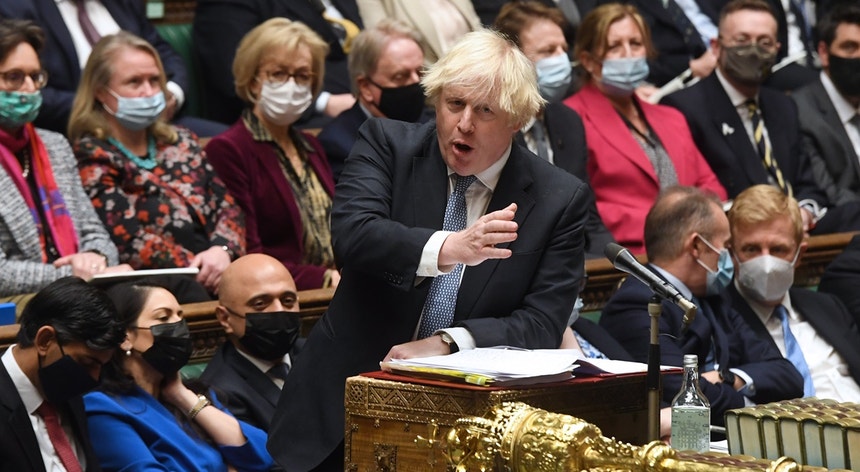On Monday, Boris Johnson passed a vote of no confidence from his Conservative Party. According to Conservative Committee Chairman Graham Brady, 211 MPs voted in favor of Johnson and 148 against.
Johnson received positive votes from at least half of his party’s MPs (180 MPs), meaning he remains in office and cannot be challenged again for 12 months.
The result also indicates that about 59 percent of deputies tory retained confidence in Boris Johnson – a smaller percentage than his predecessor, Theresa May, who survived a vote of no confidence in 2018, gaining 200 votes in favor and 117 against.
Despite the win, the result shows Conservative MPs are divided on Boris Johnson’s performance as party leader.
and, above all, as prime minister.
Many Conservative MPs who support Boris Johnson even argue that this result opens up an internal war within the party and argue that Johnson won technically but lost politically.
Theresa May’s own example proves that Monday’s result does not guarantee Johnson’s safety as prime minister, given that her predecessor, despite also winning a vote of no confidence, will eventually announce his resignation six months later, given isolation within his party. .
Boris Johnson called the result “good news”
Boris Johnson described his victory as “good news”, stressing that Monday’s result is “convincing” and “decisive” and will allow the government to “move forward” by putting Partygate controversy behind.
“I think this is a compelling result, a decisive result, and it means that as a government we can move forward and focus on the things that really matter to the people,” the British Prime Minister told reporters.
“Now we need to unite as a country and as a party,” he stressed, blaming the current divisions on media coverage and dismissing plans for early legislative elections.The vote of no confidence was initiated after at least 54 Conservative MPs wrote a letter expressing dissatisfaction with the actions of Boris Johnson and demanding a vote of confidence.
The move was fueled in part by scandals involving illegal parties on Downing Street during lockdown attended by Boris Johnson, a process dubbed ‘Partygate’. The controversy has left Boris Johnson increasingly isolated within the Conservative Party, and his popularity has plummeted.
In May, six months after the first party scandal during the pandemic became known, Boris Johnson received a report from Sue Grey, the senior government official in charge of the domestic investigation.
During the investigation, parties blamed the prime minister, and although Johnson took “full responsibility” for the violations, he reiterated that he would not resign.
The Prime Minister of the United Kingdom and Finance Minister Rishi Sunak have been fined for participating in parties that violated the rules in place during their detention in the context of the covid-19 pandemic. So far, 50 fines have been imposed on British government officials.
Reactions to the result of movement
For Labor leader Keir Starmer, British voters now face a choice “clearer than ever”: a united Labor Party or a divided Conservative Party.
“The divided conservatives who support Boris Johnson are not planning to address the issues you face. Or a united Labor Party with a plan to fix the cost of living crisis and restore confidence in politics,” Starmer tweeted.
In a statement, Starmer added that it was “grotesque” that Conservative MPs voted for someone with no “sense of duty.”
Former minister David Jones told Reuters this vote will “make it easier” for Boris Johnson, but he will also understand that “the next priority is to restore party cohesion.”
Former Conservative minister David Davis said the vote of confidence in Johnson was “premature”. When asked what he thought of the result, Davis replied that he was not surprised. “I heard that this vote was premature,” he defended, saying that the United Kingdom would now be in “suspense” for a year.
Other deputies are less optimistic. The Conservative MP told Reuters on condition of anonymity that Monday’s results are “clearly much worse than most people expected. But it’s too early to tell what will happen now.”













